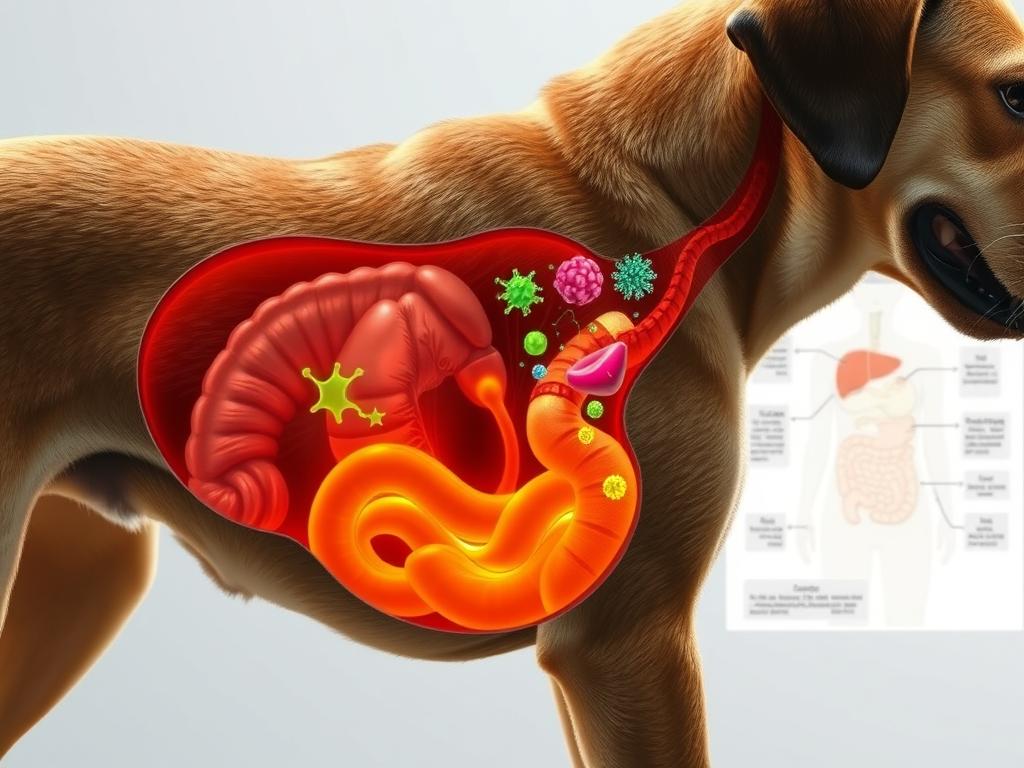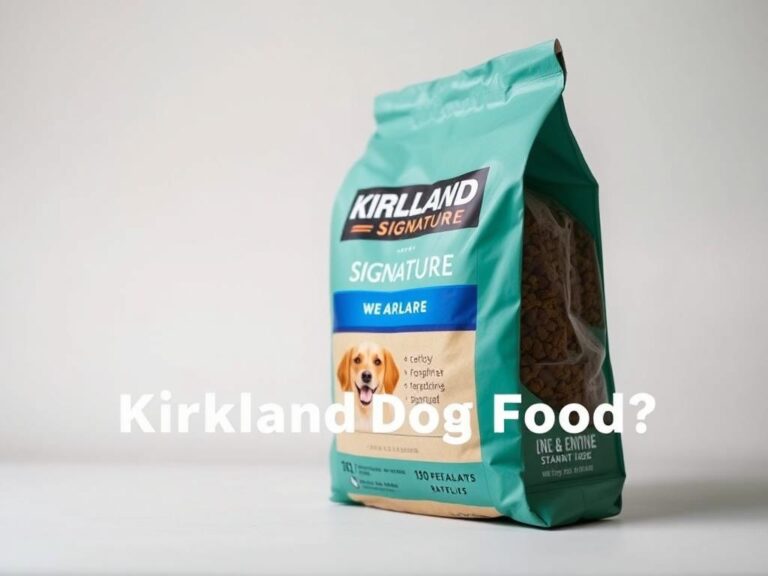The Digestive Timeline for Dogs: How Long Food Takes
Understanding the dog digestion timeline is crucial for maintaining canine digestive health. A dog’s digestive system is complex, and knowing how it functions can help pet owners make informed decisions about their dog’s diet and overall health.
The digestive process in dogs is influenced by various factors, including diet, age, and health conditions. For instance, probiotics can play a significant role in supporting canine digestive health. As seen in reviews of products like Mokai Vital Probiotic, most dogs begin to show improvement within a few days, with full benefits typically taking a few weeks.
By understanding the dog digestion timeline, pet owners can better manage their dog’s digestive health and make informed decisions about their care.
Canine Digestive System Basics
Understanding the canine digestive system is crucial for dog owners who want to ensure their pets are receiving the best possible nutrition. A dog’s digestive health plays a significant role in their overall wellbeing, affecting everything from their energy levels to their coat condition.
Anatomy of a Dog’s Digestive Tract
The digestive tract of a dog is a complex system that includes the mouth, esophagus, stomach, small intestine, and large intestine. Each part of the digestive tract has a unique role in breaking down food into nutrients that can be absorbed. The mouth is where digestion begins, with teeth tearing food into smaller pieces and saliva containing enzymes that start the breakdown process.
The esophagus transports food to the stomach, where it is mixed with stomach acids and digestive enzymes that further break down the food. The small intestine is where most of the nutrient absorption takes place, with the walls of the intestine lined with finger-like projections called villi that increase the surface area for absorption.
How Dogs Process Different Nutrients
Dogs process different nutrients in various ways, depending on the type of nutrient. For example, proteins are broken down into amino acids, which are then absorbed in the small intestine. Carbohydrates are also broken down into simpler sugars, which are then absorbed. Fats are emulsified by bile from the liver and then broken down into fatty acids.
| Nutrient | Breakdown Process | Absorption Location |
|---|---|---|
| Proteins | Broken down into amino acids | Small intestine |
| Carbohydrates | Broken down into simple sugars | Small intestine |
| Fats | Emulsified by bile, broken down into fatty acids | Small intestine |
As noted by experts, “The digestive system of dogs is highly efficient at extracting nutrients from food, but it requires a balanced diet to function optimally.” A well-balanced diet that includes the right mix of nutrients is essential for maintaining a dog’s digestive health.
How Long Does It Take a Dog to Digest Food: The Complete Timeline
The digestive process in dogs is a complex series of events that transforms food into energy. Understanding this process is crucial for dog owners to ensure their pets’ optimal health.
Mouth to Stomach: The First Stage
The journey begins in the mouth, where food is chewed and mixed with saliva. This initial stage is crucial for breaking down food into smaller, manageable pieces. The food then passes through the esophagus into the stomach, a process that typically takes a few minutes.
Stomach Digestion Time
In the stomach, food is mixed with digestive enzymes and acids that further break it down. This stage can last anywhere from 4 to 6 hours, depending on factors like the type of food consumed and the dog’s size and breed.
Small Intestine Processing
After stomach digestion, the partially digested food enters the small intestine, where most of the nutrient absorption takes place. This stage is critical for the dog’s nutritional intake and can take around 3 to 6 hours.
Large Intestine and Final Processing
The remaining waste then moves into the large intestine, where water is absorbed, and the waste is prepared for elimination. This final stage of the food digestion process can take anywhere from 10 to 24 hours, influenced by factors such as diet and overall gastrointestinal health.
Complete Transit Time from Food to Waste
The total digestion time from ingestion to excretion varies significantly among dogs. On average, it can range from 12 to 48 hours, depending on several factors including diet, size, breed, and health conditions.
Understanding the food digestion process and its various stages helps dog owners appreciate the complexity of their dog’s gastrointestinal health. By recognizing the factors that influence digestion time, owners can make informed decisions about their dog’s diet and care.
Factors That Affect Your Dog’s Digestion Speed
The rate at which a dog digests food is not uniform and can be influenced by several key factors. Understanding these factors is essential for dog owners to ensure their pets are receiving the maximum nutritional benefit from their meals.
Breed and Size Differences
Different breeds and sizes of dogs have varying digestion speeds. For instance, smaller breeds tend to have faster metabolisms and thus quicker digestion, whereas larger breeds may have slower digestion due to their larger digestive tracts. Research has shown that breed-specific characteristics can significantly impact digestive efficiency.
Age-Related Digestive Changes
A dog’s age also plays a crucial role in their digestion speed. Puppies, with their high energy needs, tend to digest food more quickly than older dogs. As dogs age, their digestive efficiency can decrease, leading to changes in digestion speed. Adjusting a dog’s diet according to their age can help maintain optimal digestion.
Activity Level and Exercise
A dog’s activity level can significantly affect their digestion. More active dogs tend to have faster digestion rates compared to less active or sedentary dogs. Regular exercise can stimulate the digestive system, promoting healthier digestion.
Health Conditions That Impact Digestion
Certain health conditions, such as gastrointestinal diseases or allergies, can significantly impact a dog’s digestion speed. Dogs with these conditions may experience either accelerated or slowed digestion, depending on the nature of their health issue. It’s crucial for dog owners to monitor their pet’s health and consult with a veterinarian if they notice any signs of digestive distress.
| Factor | Effect on Digestion Speed |
|---|---|
| Breed and Size | Smaller breeds digest faster; larger breeds digest slower |
| Age | Puppies digest faster; older dogs digest slower |
| Activity Level | More active dogs digest faster |
| Health Conditions | Can either accelerate or slow digestion |
Recognizing Healthy vs. Unhealthy Digestion in Dogs
Dog owners should be aware of the indicators of healthy digestion and the warning signs of digestive problems. A dog’s digestive health can significantly impact their overall well-being, making it crucial to monitor their digestion closely.
Normal Digestion Signs and Timeframes
Normal digestion in dogs typically results in firm, well-formed stools. The transit time, or the time it takes for food to be processed and eliminated, varies depending on factors like diet and age. Generally, a healthy dog’s digestive system processes food within 24 to 72 hours.
Warning Signs of Digestive Problems
Signs of digestive problems include diarrhea, vomiting, loss of appetite, and abdominal pain. If your dog exhibits any of these symptoms persistently, it may indicate an underlying issue that needs veterinary attention.
When to Consult Your Veterinarian
If you notice any unusual signs or symptoms, or if your dog’s digestive issues persist, it’s essential to consult with your veterinarian. They can provide guidance on the best course of action and help diagnose any underlying conditions that may be affecting your dog’s digestive health.
Optimizing Your Dog’s Diet for Better Digestion
Enhancing your dog’s digestive health starts with optimizing their diet, which is vital for their overall well-being. A well-optimized diet not only improves digestion but also boosts your dog’s overall health and quality of life.
Food Types and Their Digestibility
The type of food your dog consumes significantly affects their digestive health. High-quality dog food that is rich in nutrients and easily digestible can make a substantial difference. For instance, foods with prebiotics and probiotics can support a healthy gut microbiome.
Here’s a comparison of different food types and their digestibility:
| Food Type | Digestibility | Nutritional Value |
|---|---|---|
| Kibble | Moderate | High |
| Raw Food | High | Very High |
| Canned Food | Low to Moderate | Moderate to High |
Feeding Schedule Recommendations
Establishing a consistent feeding schedule is crucial for maintaining your dog’s digestive health. Most dogs benefit from being fed twice a day, though this can vary based on age, size, and activity level.
Transitioning Between Foods Safely
When changing your dog’s food, it’s essential to do so gradually to avoid digestive upset. Start by mixing a small amount of the new food with their current food and gradually increase the proportion over 7-10 days.
Supplements That Support Digestive Health
Supplements can play a vital role in supporting your dog’s digestive health. Probiotics, prebiotics, and digestive enzymes are popular choices. However, it’s crucial to consult with your veterinarian before adding any supplements to your dog’s diet.
Understanding Your Dog’s Digestive Health
Understanding the dog digestion process is crucial for maintaining your dog’s overall health. The canine digestive health is influenced by various factors, including breed, age, and diet. As discussed, the time it takes for a dog to digest food varies, typically ranging from several hours to a few days.
To support your dog’s digestive health, it’s essential to choose the right food and feeding schedule. A well-balanced diet that is easily digestible can help prevent digestive issues. Regular exercise and a healthy lifestyle also play a significant role in maintaining a healthy digestive system.
By understanding how long does it take a dog to digest food and the factors that affect this process, you can take steps to optimize your dog’s diet and overall well-being. Regular check-ups with your veterinarian can also help identify any potential issues early on, ensuring your dog leads a healthy and happy life.





